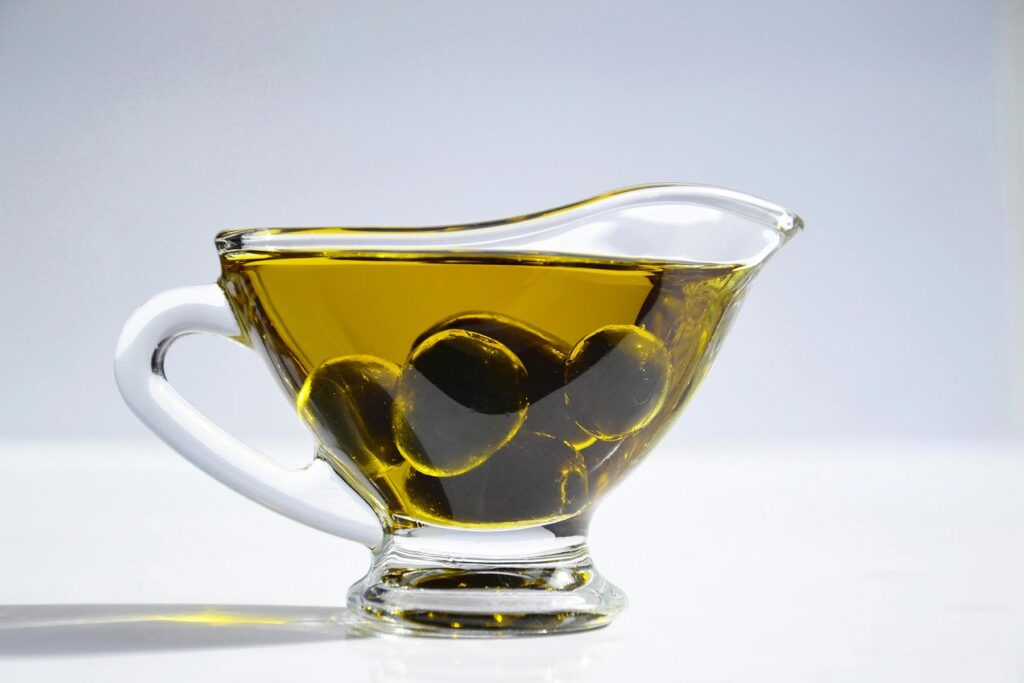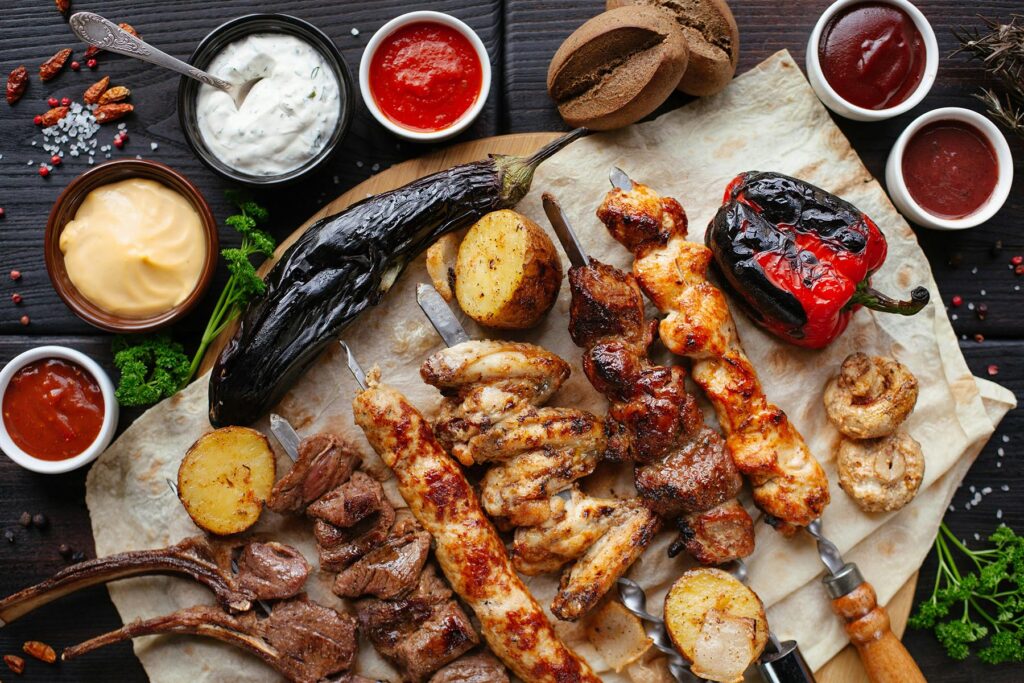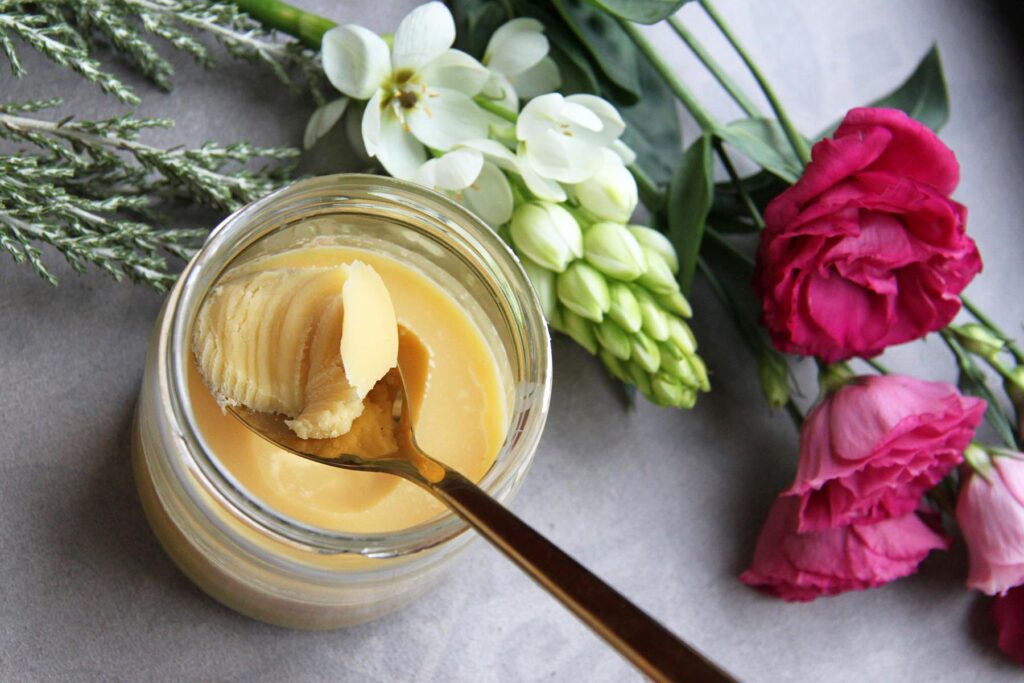Excellence is not a simple coincidence. It is the result of consistent hard work, day after day, all year round.

In the timeless quest for the perfect extra virgin olive oil, Casas de Hualdo has mastered an intricate and all-consuming artform: extracting excellence from nature for all to savor, without compromising the beauty, harmony and vitality of unparalleled surroundings. This delicate balance requires deft hands in the olive groves as well as hearts dedicated to honoring the fruits of the earth in every season and in every step, from tending trees and harvesting the bounty to showcasing and sharing the final product.
The unrivaled quality of Casas de Hualdo oils can be attributed to a reverence for the natural beauty of the estate. The cultivation of premium olives – the only olives considered for the estate’s oils – relies on a strong desire to nurture the environment for future generations. A refuge for native wildlife, Casas de Hualdo’s breathtaking setting is replete with rich vegetation that contributes to a healthy and vibrant habitat. Sustainable agricultural practices work with the land, gently coaxing an abundance of various crops through judicious watering, pruning and composting.
Minded year-round by individuals dedicated to preserving a way of life compatible with nature, Casas de Hualdo is more than simply an olive grove – it is a retreat to a simpler and more conscientious way of living and of working in harmony with an exceptional ecosystem. The resulting olive oils express the perfection of nature as well as nature’s perfect integration with this thriving estate, its people and their passion for excellence.

Estate Farm
The Casas de Hualdo estate is distinguished by its mosaic of crops and by the closed cycle nature of its agricultural practices. In addition to cultivating approximately 680 hectares (1,680 acres) of olive trees, the farm tends pistachio trees, corn, rye grass, barley, alfalfa, and green peas, among other crops. A herd of 1,800 Manchega sheep are maintained on the property, grazing outdoors and being fed from the crops and vegetal remains of pruning. The sheep provide fertilizer for the farm, and their milk will soon be used in the production of cheese at the estate.

The Olive Grove
The variable terroir of Casas de Hualdo dictates the varieties of olives planted in the olive grove, as soil types, climate and topography vary within the estate. Through a soil analysis, the following varieties were selected as the best fit for our estate:
- Arbequina: produces an oil with predominantly fruity notes alongside a subtle, well-balanced bitterness and spice; artichoke, tomato plant, apple and banana are some identifiers in the nose and mouth.
- Picual: produces an oil with aromas of green leaf, green banana and even mint – very complex and aromatic.
- Manzanilla Cacereña: produces an oil with a green grass aroma with hints of green fruit and rutabaga, as well as sensations of radish, endive and spinach along with tomato and green banana.
- Cornicabra: produces an oil with herbal nuances and aromas of olive leaf, green grass and green almond and fresh flavors of lettuce, arugula and lamb lettuce.
The estate’s olive trees are planted at densities that vary based on the variety. For instance, arbequina is mostly planted in a super-intensive formation, in lines, while the remaining varieties are planted in an intensive pattern.
Casas de Hualdo focuses on quality throughout the olive grove, and its Cornicabra variety is native to its Castilla-La Mancha region; as such, it belongs to the D.O.P. Montes de Toledo and its production is also overseen by the local administration.
The Farming Process
Casas de Hualdo is committed to the environment and being a steward of its natural heritage. The estate promotes biodiversity and is ISO 14001 certified, which provides parameters for environmental protection, managing environmental responsibilities and balancing the socio-economic needs of the farm. Casas de Hualdo melds traditional agricultural practices with modern techniques while incorporating sustainable practices throughout, including:
- Deficit irrigation systems: used to optimize water resources and cultivate high-quality olives by using data from humidity sensors to determine how much water trees need and using on the necessary amount for irrigation purposes
- Foliar analysis: conducted to determine if fertilizers are necessary and in which amount
- Trunk dendrometers and humidity probes: state-of-the-art sensors that measure humidity levels in soil and activity inside the olive trees to ensure irrigation only as needed
- Solar plant: solar power is used to pump water from the river to irrigate when rainfall is insufficient
- Closed cycle operations: everything the estate gets from the farm and its crops reverts to the land, including recovering rainfall water from the estate’s ponds to irrigate
The Harvest:
Harvest begins each year by mid-October and fruit is collected mechanically, using blankets and umbrellas to ensure olives never come in contact with the soil, which could introduce defective aromas or pollutants in the oils. Olives are picked early, while still green or “envero” (the moment when olives turn from green to purple), to ensure quality and preserve the fruit’s best attributes, aromas and polyphenols. The fruit is not harvested until it is needed at the mill, and small trailers are used to make frequent deliveries; the mill master sets a rhythm to ensure olives are pressed on delivery and do not wait.
Olive Mill:
The mill is in the heart of the estate, ensuring that fruit travels only a short distance and is pressed within six hours of harvest, at a maximum, and often within as little as two or three hours of harvest. Different olive varieties are milled separately, resulting in different batches with distinct characteristics.
Built in an architectural style that blends with the surrounding region and fitted with the latest technology, the olive mill uses low temperatures – under 25°C (77°F) during the milling process to preserve the volatile components of the oils. Once extracted, the olive oil is stored in stainless steel tanks, between 16°C and 19°C (about 60°F and 66°F), under an inert atmosphere to prevent oxidation and is only bottled upon demand. Each harvest produces approximately 700 tons (700,000 kg./1.54 million lbs.) of premium extra virgin olive oil.




